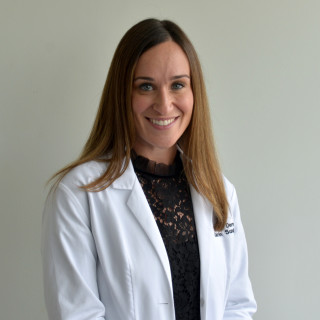
Physician assistant education encompasses many different specialties, and countless corners of medicine and surgery are taught. However, according to the American Academy of Physician Assistants, the most common field for physician assistants to enter is primary care. I distinctly recall overhearing discussions that other PA students were having after class, hearing that they were going to take a job in primary care so that they wouldn’t ‘lose’ all of their general knowledge, or that they would seek out an emergency medicine position to ‘utilize all of the skills’ they’d gained during PA School.
When I was asked during PA school interviews which field I thought I would pursue, I immediately said dermatology every single time. I had spent extensive time shadowing a dermatologist during my undergraduate years and was certain of my interest in the field. However, when I would hear my classmates talk about the importance of utilizing the entire scope of our newfound knowledge and waiting to specialize until they had been working for a few years, I couldn’t help but feel insecure in my plans.
Thankfully, I followed my initial instincts. I loved dermatology from the start, and I was lucky enough to receive a job offer from the same practice that hosted my dermatology clinical rotation. The night I received my job offer, I actually thought to myself, “If I take this job, that means that all of the knowledge and experience I’ve gained over the past years will be wasted.” I put that thought deep in the back of my mind, and took the job that I really wanted.
Things have a funny way of working out how they’re supposed to; for the past ten years, I’ve been practicing dermatology and am loving every day that I walk into the office. Interestingly, I use much of the knowledge and experience that I gained in PA school (the same knowledge and experience that I was certain would be wasted) every single day. Yes, I’m practicing dermatology, but my patient with a drug-induced rash may have a list of twelve medications that must be sorted through; my patient with hair loss may actually end up being diagnosed with systemic lupus erythematous right in my office, as a result of blood work that I ordered; the patient with shingles may end up developing post-herpetic neuralgia — I could go on forever.
Medicine is not an island. No individual specialty is distinct or completely separate from the others. Just as the body that we care for is complex, so are our specialties. We must take with us all of the knowledge that we have, in any field, in order to provide the highest level of care for our patients. Do I think my skills were wasted by not having a primary care or internal medicine job right out of school? Do I feel that I could have benefited from taking a job in a more generalized field of medicine? I truly don’t and I recommend to all of the students I mentor that they follow their gut and enter the field that they find most rewarding.
Lauren Sundick, PA-C, practices dermatology in Roseville, MN and is a Co-Founder of The Skin Sisters (www.TheSkinSisters.com). Lauren’s interests include both medical and cosmetic dermatology.







